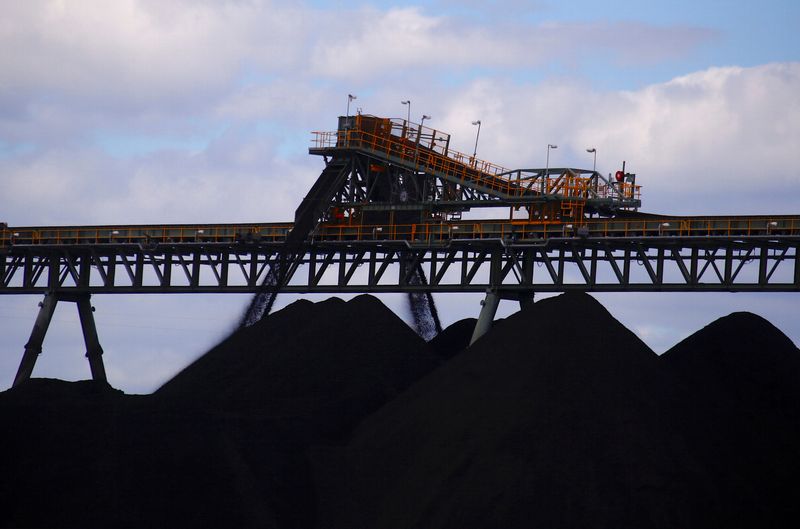By Melanie Burton and Sonali Paul
MELBOURNE (Reuters) - Australia's most populous state is set to require coal miners to reserve up to 10% of production for the domestic market, as part of a national move to cap soaring energy prices, government officials said on Thursday.
Australia's Labor government led by Prime Minister Anthony Albanese in December passed legislation to cap natural gas prices for one year, and secured agreements from the coal producing states of New South Wales (NSW) and Queensland to cap the price of coal sold to power plants.
NSW Treasurer Matt Kean said on Thursday the state would require those coal miners that do not currently sell into the domestic market to reserve between 7% and 10% of their output for domestic use.
The new arrangement would ensure a fairer sharing of the burden among coal companies as part of the federal government’s push to drive down energy prices, he said.
Thai firm Banpu's Centennial Coal and Peabody Corp are the main suppliers of coal to power plants in the state.
Other major coal miners in the state include BHP Group (NYSE:BHP), Glencore (OTC:GLNCY) Plc, Whitehaven Coal, Yancoal and New Hope (OTC:NHPEF) Corp, which concentrate on exports.
The NSW Minerals Council, which represents miners, said the policy would have little impact on electricity prices but could upset trade partners, raise costs by disrupting existing supply chains and deter future resources investments in the state.
"Extending the policy to coal producers not currently involved in the domestic coal supply is a radical change of approach that highlights how extremely rushed this policy process has been," NSW Minerals Council CEO Stephen Galilee said in a statement.

He added that coal producers would continue talks with state officials "to minimise the economic damage of this flawed policy".
Whitehaven said on Thursday it was in talks with state government officials to supply coal.